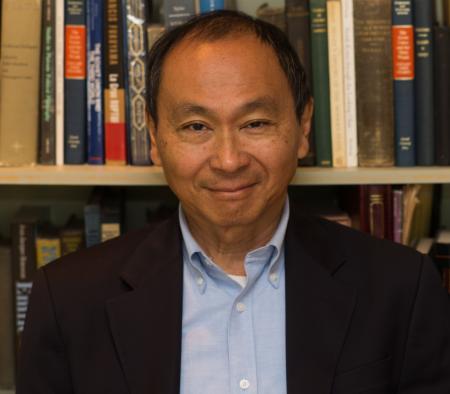The Origins of Indian Political Institutions: The Long View
Nand & Jeet Khemka Distinguished Lecture Series
Dr. Francis Fukuyama
Olivier Nomellini Senior Fellow, Freeman Spogli Institute for International Studies, Stanford University
Kirkland & Ellis, LLP
50th Floor Conference Center
601 Lexington Avenue
New York, New York 10022
Reception – 5:00
Lecture – 6:00
50th Floor Conference Center
601 Lexington Avenue
New York, New York 10022
Reception – 5:00
Lecture – 6:00
About the Speaker:
Dr. Francis Fukuyama is the Olivier Nomellini Senior Fellow at Stanford University’s Freeman Spogli Institute for International Studies. He has previously taught at the Paul H. Nitze School of Advanced International Studies of the Johns Hopkins University and at the George Mason University School of Public Policy. Fukuyama was a researcher at the RAND Corporation and served as the deputy director for the State Department’s Policy Planning Staff. He is the author of The Origins of Political Order, The End of History and the Last Man, Trust, and America at the Crossroads, among other books. He lives with his wife in California.
Press:
"Francis Fukuyama on India, US, China, and 'Vetocracy'," Suman Guha Mozumder. India Abroad, October 31 2014
The Nand & Jeet Khemka Distinguished Lecture Series is an endowed public program of the Center for the Advanced Study of India (CASI). Launched in the 2007-08 academic year, and made possible through the generous support of the Nand & Jeet Khemka Foundation, the series brings renowned India specialists to the Penn community and serves as a critical forum for analyzing and understanding the complex economic, political, social, and cultural changes that the world’s largest democracy is experiencing, as well as the challenges that lie ahead.
The Saluja Global Fellows Program has been made possible by the generous gift from Vishal Saluja ENG’89 W’89. CASI was excited to launch the program during the 2022–23 academic year, coinciding with the Center’s 30th Anniversary. This new program enables CASI to invite eminent leaders and rising experts on contemporary India preferably from the fields of media, culture, law, and contemporary history to be in residence for one to two weeks at CASI.

